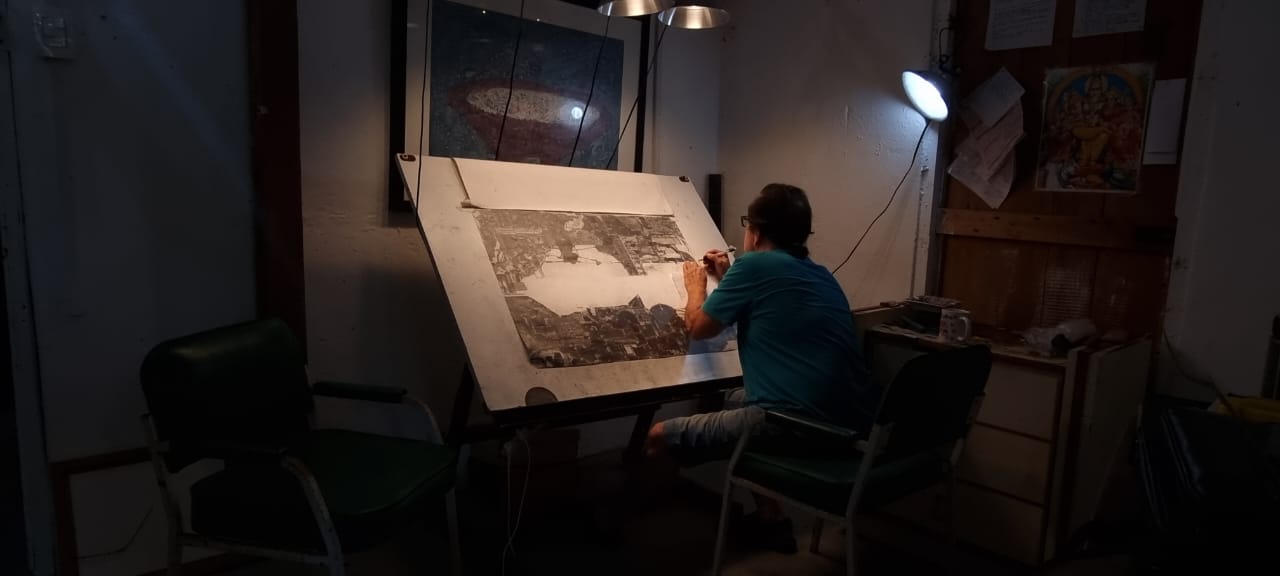About Me

By Simon Lee (aka ”The Inspector”)
It would be disingenuous to dissimulate, or in Trinidad parlance play “the mocking pretender” (empty hyperbolic windbag) or even attempt to “mamaguy” (fool) those of you who have strayed from the drawings, an amazement unto themselves, into this textual morang and sometime meringue. What follows lays no claim to art criticism, although some of it might be. It is neither objective nor detached, as I have known the artist for close on 30 years, arriving in this Trinidada the same year as The Architect of Impossible Physics found his way onto the drawing board.
Disclaimers aside, what I can offer are some responses based on life experience and the accumulated research of more than 40 years into Caribbean culture, high and low, popular, folk, rootical, theoretical, historical and supernatural. That’s some of the background, which would also include countless research trips and ‘deep limes’ across the entire region from Cuba, Hispaniola (Haiti and The Dominican Republic) and Jamaica in the north, all the way down south to Cayenne in Guyane (French Guyana) and the infamous Devil’s Island. En route I’ve met prime ministers and ganja farmers, fishermen and bush doctors, beer brewers and rum distillers, artists and vendors, Vodou, Kali and Orisha priests, cricketers and stickfighters, musicians and hitmen.
If you’re into credentials, you’ve just had some of mine, as I’m convinced, unlike a distinguished academic who’s widely recognized in academe as an expert on Haitian literature but has never set foot in Haiti, that to discuss, or comment on any aspect of culture, one must know the land and seascapes, the his and her stories of provenance and the people who made them. Position and context, point of view –are all more than relevant. Any cultural theorizing or discourse, such as this, must be based on primary research. Organic, as opposed to the cerebral style of theory (largely western and burdened with such schismic titles as structuralism, post structuralism, post modernism, post colonialism) begins with the practice, from which theory is derived. Otherwise theory is disconnected, a cart before the proverbial horse, as practice does not conform to (existing) theory but begets it.
And while the Caribbean is inextricably entangled with Western discourse and has produced postmodern analysis of culture –notably Antonio Benitez-Rojo’s The Repeating Island, Caribbean theory like Caribbean new knowledge is (must by definition) be generated here, which is the centre, rather than from a distant metropolis, which is peripheral to our purposes. As José Martí observed in his seminal 1891 essay Nuestra America (which reclaims the name of the region from Yankee monopoly) “The European university must bow to the American university. The history of America, from the Incas to the present, must be taught…even if the archons of ancient Greece are overlooked. Our Greece must take priority over the Greece which is not ours. We need it more…Let the world be grafted onto our republics, but the tree must be our own.”
